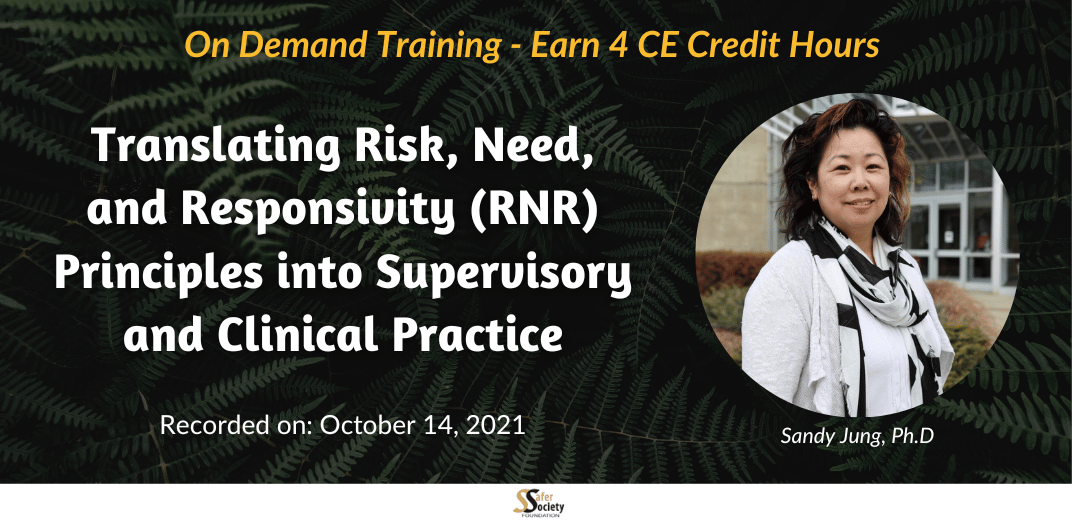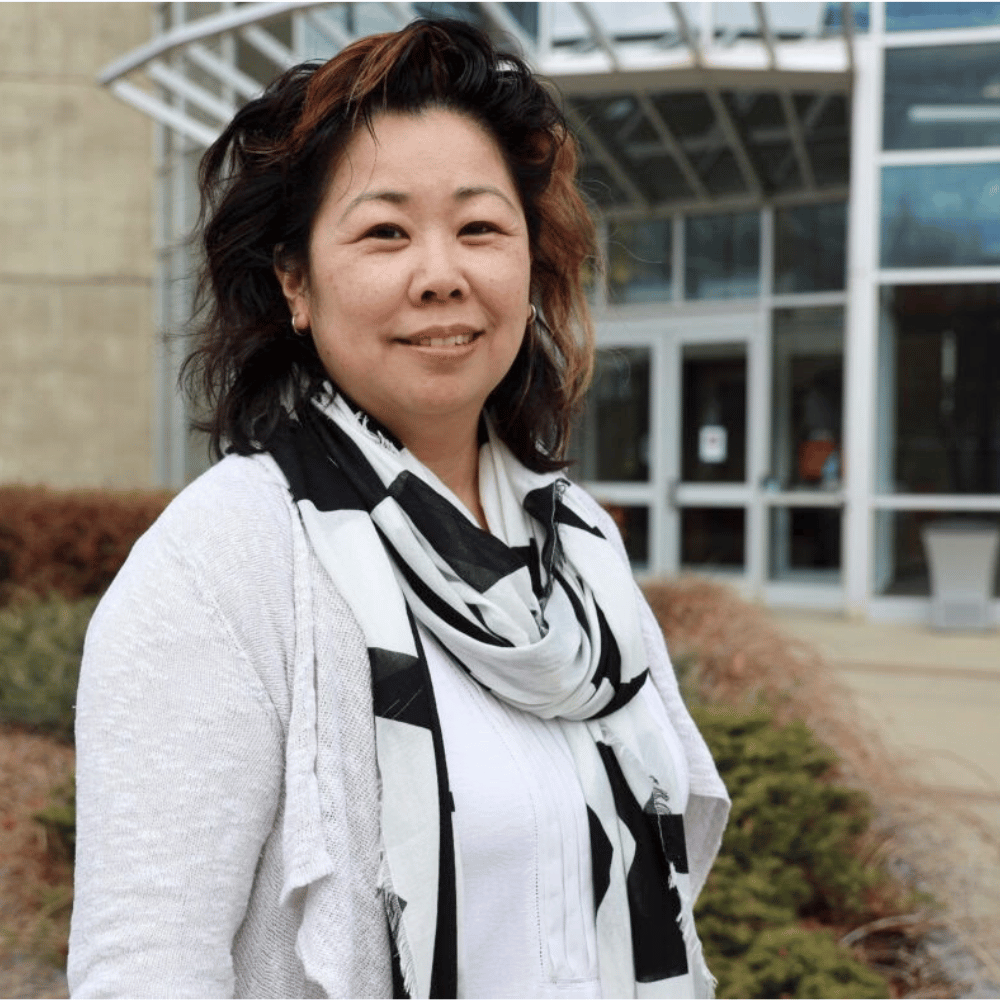
Translating Risk, Need, and Responsivity (RNR) Principles into Supervisory and Clinical Practice
Already purchased an On Demand training?
Click here to access your Safer Society On-Demand Training Center account.
This workshop focuses on the practical application of a widely accepted theory of criminal conduct, the Risk-Need-Responsivity (RNR) model, to guide offender management and rehabilitation. The RNR principles are well-supported by empirical research and endorsed by many correctional organizations across North America and other parts of the world.
After summarizing the history of RNR and the science behind it, presenter Sandy Jung focuses on:
- translating RNR principles into practice
- describing what that looks like
- examining the potential challenges of implementation.
The goal is to offer practical tools to effectively implement these principles in both clinical practice and supervision of adult individuals convicted of sex offenses.
1) Explain the Principles for Effective Correctional Rehabilitation (RNR model)
2) Describe the empirical support for the RNR model
3) Explain how to apply the risk principle in terms of prediction and matching
4) Recognize what are and what are not criminogenic needs
5) Identify and address specific responsivity issues
6) Recognize implementation issues that may arise
Audience
This training is for professionals working with people who have experienced complex trauma as well as people who have perpetrated abuse. Professionals who will benefit from this training include social workers, psychologists, clinical counselors, and interested paraprofessionals.
Content Level
Disclosure
Continuing Education Approval
American Psychological Association (APA)
Safer Society Foundation, Inc. is approved by the American Psychological Association (APA) to sponsor continuing education for psychologists. Safer Society Foundation, Inc. maintains responsibility for this program and its content.
Who's Presenting

Sandy Jung, PhD
Sandy Jung, Ph.D., is a professor in the Department of Psychology at MacEwan University in Edmonton, Canada. She maintains an active research program in her Psychology Crime Lab (PCL@M) that focuses on the prevention of sexual assault, child sexual exploitation, and intimate partner violence and is funded by both internal and major external grants. She has numerous peer-reviewed publications in the field of forensic psychology, often co-authored with her students and several of her collaborators in law enforcement, forensic mental health, and other academic institutions in Canada, U.S., and other parts of the world. She was a recipient of the Distinguished Teaching Award in 2017 and the Distinguished Research Award in 2018 at MacEwan, and was previously a Board of Governors Research Chair. Prior to her current academic position, she was a forensic psychologist at a forensic mental health facility where she provided assessment, treatment, and risk management of individuals convicted of violent and sexual offences. She is currently an Editorial Board Member for the journals, Sexual Abuse and Sexual Offending: Theory, Research, and Prevention, Chair of the Criminal Justice Psychology Section in the Canadian Psychological Association, and an Assistant Adjunct Professor in the Department of Psychiatry at the University of Alberta.
